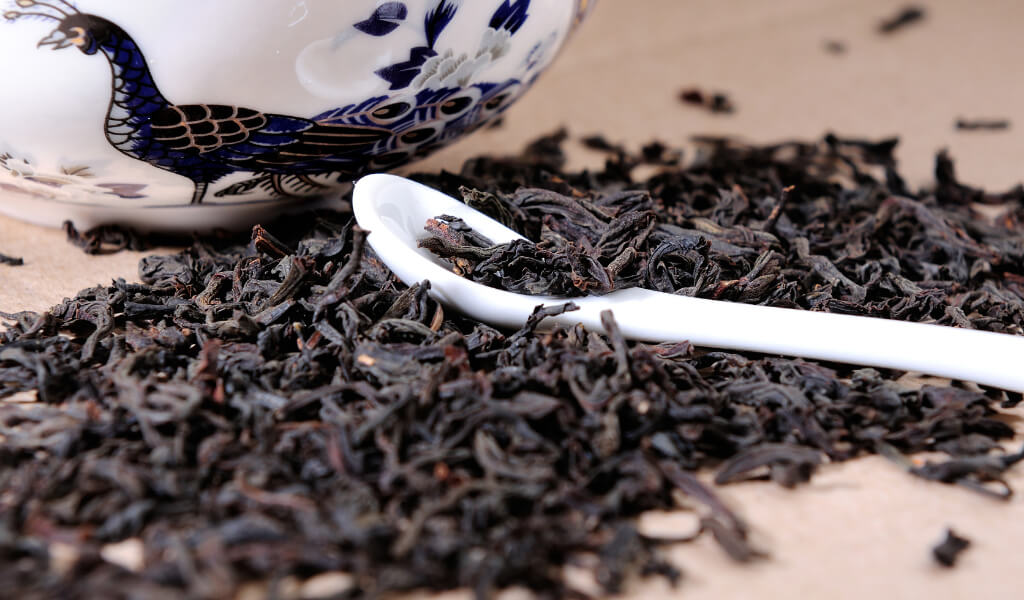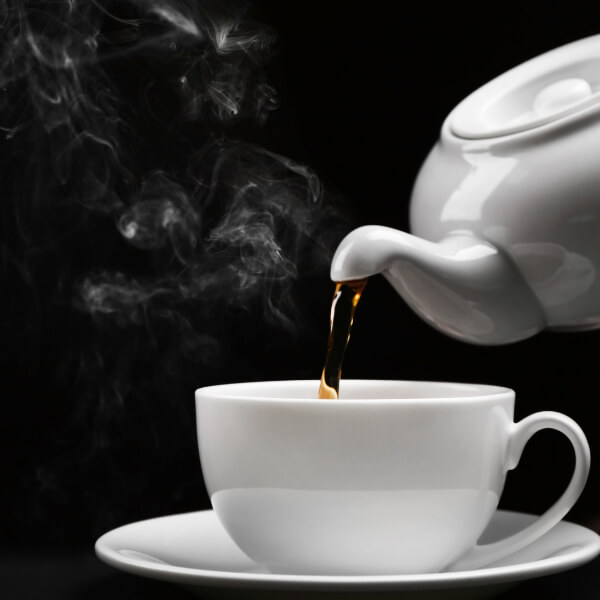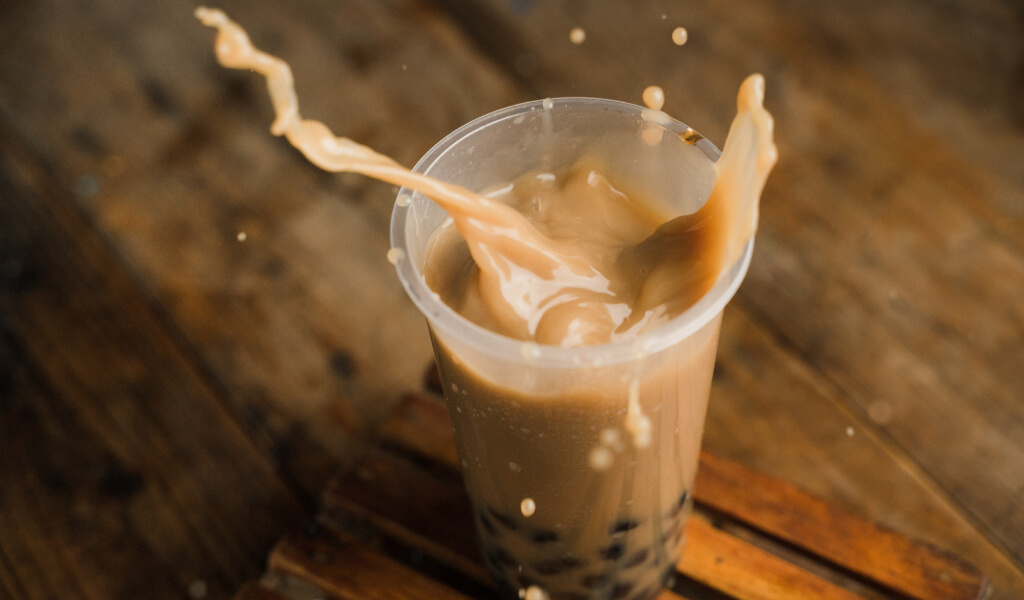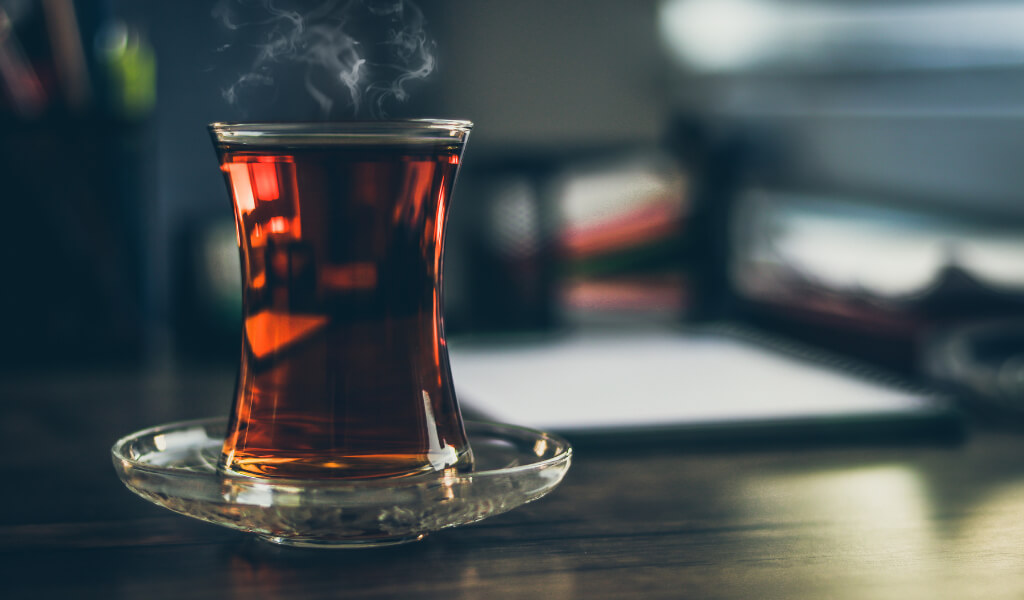Have you ever wondered what does Black tea taste like? And does black tea taste good? I certainly did when I first ventured into the world of tea. With its robust and complex flavor profile, black tea has intrigued and enchanted tea lovers for centuries.
Quotes of tea with You
“Tea should be taken in solitude.”
– C.S. Lewis
What does black tea taste like?
Black tea is known for its distinct flavor, setting it apart from other types of tea. Its strong, rich aroma and taste resemble malt, giving it hints of fresh bread and caramel. Black tea is also favored by coffee enthusiasts because of its full-bodied flavor.
It also has a full-bodied, slightly astringent taste that can appeal to coffee lovers. The exact taste can vary depending on the type of black tea and how it’s brewed.
Is black tea bitter or sweet?
Black tea is typically known for its slightly bitter taste. The bitterness in black tea comes from compounds called tannins, which are naturally present in the tea leaves.. While it is generally not considered sweet, some black teas may have subtle underlying sweetness, especially if they are high-quality or blended with other ingredients like fruits or spices.
What does black milk tea taste like?
Black milk tea, also known as “bubble tea” or “boba tea,” has a unique flavor profile that combines the characteristics of black tea and milk. The taste of black milk tea can be described as a harmonious blend of the rich, bold flavors of black tea with the creamy, smooth notes of milk.
The black tea used in this beverage typically imparts a robust and slightly bitter taste, balanced by the sweetness of the milk or sweeteners added. The milk component adds a creamy and velvety texture to the tea, creating a delightful mouthfeel.
Additionally, black milk tea may hint at caramel or malt undertones, depending on the specific type of black tea used and any additional flavorings that may be added.
Do all black teas have the same taste?
Can the taste of black tea be the same every time? In my experience, not. There’s a world of difference between plain teas, consisting only of tea leaves, and flavored teas, where tea leaves mingle with other plants and flavors. And even among plain teas, the taste can change dramatically depending on various factors like the cultivation region, climate, harvesting methods, and processing techniques.
Take, for instance, the unique variant of smoked black tea. Here, post-harvest, the tea leaves are heated with coniferous wood, which lends it notes of woodiness reminiscent of mushrooms or a smoky barbecue. Imagine that! Over the years, I’ve come to appreciate this variant, especially on a fantastic evening.
Then we have fermented black tea, a process where the tea leaves are kept in a warm, humid environment to encourage ‘aging.’ The result? A tea with a remarkably smooth, earthy flavor that carries intense underwood notes. It’s like taking a sip from the forest, grounding, and invigorating.
Now, if we talk about flavored teas, the endless combinations create a kaleidoscope of tastes and aromas. Two of my favorites that have stood the test of time are Earl Grey, a black tea infused with bergamot, often referred to as Russian tea, and Indian chai, a sweet, spicy black tea grade infused in water and milk.
With its characteristic bergamot flavors occasionally mixed with lemon, Earl Grey is a morning staple. This tea is perfect for kick-starting your day, especially with breakfast or brunch.
On the other hand, Chai is a symphony of spices like cinnamon, ginger, and cloves. It’s my go-to for a midday break or a little pick-me-up. The warmth and spice work like magic to invigorate the senses.
As you can see, the world of black tea is a treasure trove of flavors, each worth exploring and savoring.
Read More:
Decoding the Factors That Influence Black Tea Flavor
|
Factors Influencing Black Tea Flavor
|
Examples/Details |
|
Origin Factors
|
Soil, climate, and altitude |
| e.g., Assam vs. Darjeeling | |
|
Brewing Process
|
Brewing time and water temperature |
| Affects flavor profile | |
|
Blends and Flavorings
|
Citrusy Earl Grey, spicy Masala Chai, blends |
| Can transform taste | |
|
Storage and Age
|
Proper storage, freshness |
| Aging, Pu-erh develops deeper flavors | |
|
Complex Interplay
|
Various factors contribute to unique taste |
| Each cup is a distinct experience |
The Role of Soil, Climate, and Altitude in Shaping Black Tea Taste
Black tea’s taste tells the tale of its origin. The soil, climate, and altitude of its cultivation each contribute to its unique flavor. For instance, lowland Assam and high-altitude Darjeeling produce distinctly different black teas.
Brewing Time and Water Temperature
The brewing process is pivotal to the taste of Dark tea. The brewing time and water temperature can alter the flavor profile dramatically, making the difference between a robust and a bitter cup.
The Impact of Blends and Flavorings on Black Tea’s Taste Profile
Blends and flavorings add new dimensions to black tea. Be it the citrusy Earl Grey or the spicy Indian Masala Chai, the choice of the blend can completely transform the taste.
How Storage and Age Affect the Taste of Black Tea
Proper storage in the best black tea bags influences black tea’s flavor. A well-stored tea maintains its freshness, while certain types like Pu-erh develop deeper flavors over time.
The taste of black tea is a complex interplay of various factors, making each cup a unique experience.
What is the difference between the taste of black and green tea leaves?
In my years of tea tasting, I’ve understood that while black and green tea’s harvest time and drying process might be the same, their journey post-harvest sets them apart. The critical difference lies in the oxidation process.
Black tea takes a leisurely sunbath in the open air for an extended period, allowing it to oxidize naturally. This interaction with oxygen gives black tea its signature color and impacts the shade of your tea when infused. It also plays a significant role in sculpting the tea’s flavor profile.
As a result of this process, black tea often has a less bitter taste than its green counterpart, which carries a fresher and more vegetal flavor. It’s a contrast of richness versus vivacity, both equally delightful in their ways.
Read More:
- Discovering the Best Time to Drink Black Tea for Optimal Benefits
- How To Make Black Tea At Home Wih My Detailed Guide
What to drink with black tea?
Starting my day with a cup of the quintessential morning black tea, English Breakfast, is a ritual I cherish. It’s the perfect partner to my breakfast – often just simple jam sandwiches. The robustness of the tea perfectly balances the sweetness of the jam, kick-starting my day on a delightful note.
When lunchtime rolls around, I usually reach for Yunnan black tea. There’s something about its complex, full-bodied flavor that pairs wonderfully with meats. Yunnan black tea complements them all, whether it’s a tender piece of veal, juicy chicken, succulent duck breast, or indulgent foie gras.
As the clock strikes tea time, it’s time to switch gears. I choose from my collection of black teas – be it the citrusy Earl Grey, floral Darjeeling, or full-bodied Ceylon – and pair it with a pastry. Sticking to the British tradition, I sometimes bake scones. But I might have toast, muffins, or crumpets, those adorable mini pancakes, on other days.
On special occasions, I treat myself to other cakes like the checkerboard-patterned Battenberg cake with its sponge and marzipan layers or a shortbread coated in chocolate and caramel. It’s a small moment of indulgence in an otherwise busy day. So, you see, black tea is not just a beverage for me – it’s a cherished part of my daily routine.
What is the best way to prepare black tea for optimal flavor?
To prepare black tea for optimal flavor, use fresh, high-quality loose-leaf tea, and filtered water. Bring the water to a rolling boil and pour it over the tea leaves, allowing them to steep for the recommended time (usually 3-5 minutes). Adjust the steeping time and water temperature based on your taste preferences and the specific type of black tea you are using.
In conclusion
Black tea has a distinctive taste and is often slightly bitter yet flavorful. The tea leaves robustness, and the tannins’ presence contributes to their characteristic bitterness.
However, the taste can be subjective and vary based on personal preferences and brewing methods. To truly experience the unique flavor of black tea, I encourage you to try different types, experiment with brewing times and temperatures, and perhaps add milk, sugar, or honey to find the perfect balance that suits your palate.
I’m Shanna Smith, admin at Spiriteadrinks
FAQs
Does black tea taste different than regular tea?
Yes, black tea tastes different than other tea types due to its complete oxidation process, giving it a more robust flavor, higher caffeine content, and darker color than white, green, or oolong teas.
Is green tea or black tea tastier?
The taste preference between green tea and black tea is subjective and depends on individual flavor profiles. Green tea has a lighter, grassy taste, while black tea offers a more robust, fuller flavor.
How does the oxidation process affect the taste of black tea?
Oxidation is a critical process in developing the flavor of black tea. During oxidation, the tea leaves are exposed to air, causing them to darken and develop complex flavors. This process deepens the taste of the tea, often making it robust and full-bodied compared to unoxidized or less oxidized teas like green or white tea.
Is the caffeine content different in black and green tea?
Yes, the caffeine content can vary between black and green tea. Generally, black tea tends to have higher caffeine content than green tea due to the full oxidation it undergoes. However, the exact amount can depend on factors such as the specific type of tea and brewing methods.
What are tannins, and how do they influence the taste of black tea?
Tannins are naturally occurring compounds found in many types of plants, including tea. In black tea, they contribute to its characteristic astringency and full-bodied flavor. The longer the tea is steeped, the more tannins are released, which can lead to a more spicy, more bitter taste.
What are the health benefits of black tea?
There are many health benefits of black tea, known as polyphenols. It may improve heart health, lower “bad” LDL cholesterol, improve gut health, and even help reduce stroke risk. However, it’s important to remember that more research is needed, and tea should be part of a balanced diet.
Is black tea sweet?
A brewed black tea can have different colors, such as amber, red, or dark brown. Its taste can vary from savory to sweet, depending on how long it was left to oxidize and how it was heated during processing.
I’m Shanna, creator of Spiritea Drinks. I’m all about teaching people to grow their own food, tea, cook what they harvest, and eat with the seasons.




